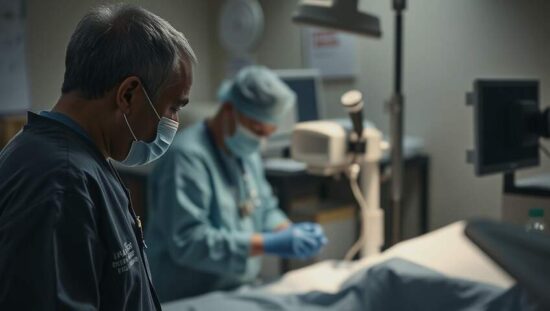The German Medical Service (Medizinischer Dienst) has released figures revealing a persistent level of medical error accusations across the nation in 2024, with 12,304 specialist expert assessments conducted regarding suspected treatment failures. While maintaining a status quo compared to previous years, the data highlights concerning trends regarding patient harm and systemic failures within the German healthcare system.
Critically, 26.8% of assessed cases (3,301) resulted in the identification of a treatment error leading to demonstrable patient harm – a slight increase from 3,160 in 2023. Furthermore, 23% of cases (2,825) established a direct causal link between the identified error and the inflicted damage, also showing a rise from 2,679 the prior year. It is this established causality that determines a patient’s eligibility for compensation, a crucial point underscoring the potential for widespread underreporting and insufficient redress.
“These errors aren’t just detrimental to patients; they incur substantial costs to the German healthcare system, forcing further investigations, repeat surgeries and prolonged aftercare” stated Stefan Gronemeyer, CEO of the Medical Service. This acknowledges the economic burden inherent in preventable medical errors, potentially diverting resources from preventative measures and essential care.
The majority of accusations (two-thirds, or 7,960) relate to treatment within stationary facilities, primarily hospitals, reflecting the complexity and higher risk associated with inpatient care. However, a significant 4,312 accusations arose from the outpatient sector, suggesting issues extend beyond the institutional setting. The prevalence of accusations concerning orthopedic and trauma surgery (29.8%, or 3,664 cases) stands out, alongside significant numbers in internal medicine and general medicine (11.5%, or 1,402 cases), gynecology and obstetrics (8.9%, or 1,097 cases) and surprisingly, dentistry (8.4%, or 1,040 cases) and nursing care (6.7%, or 827 cases). This distribution emphasizes the need for targeted interventions across various medical specialties.
The impact of these errors is profound. While nearly two-thirds (63%) resulted in temporary impairments necessitating further intervention or extended hospital stays, a substantial 32% involved permanent damage, ranging from minor limitations to debilitating chronic conditions. Tragically, in 2.7% of assessed cases (75 instances), the medical error directly contributed to the patient’s death.
Experts are now calling for reform, emphasizing the urgent need for immediate transparency and patient notification protocols when errors occur. Beyond that, advocates propose a structured, sanctions-free reporting system – a “Never Events” system – to facilitate systematic preventative measures and a stronger focus on patient safety. The current figures suggest that the status quo is insufficient and that proactive, systemic changes are vital to safeguard patient wellbeing and minimize the demonstrable and costly consequences of medical errors within Germany.





